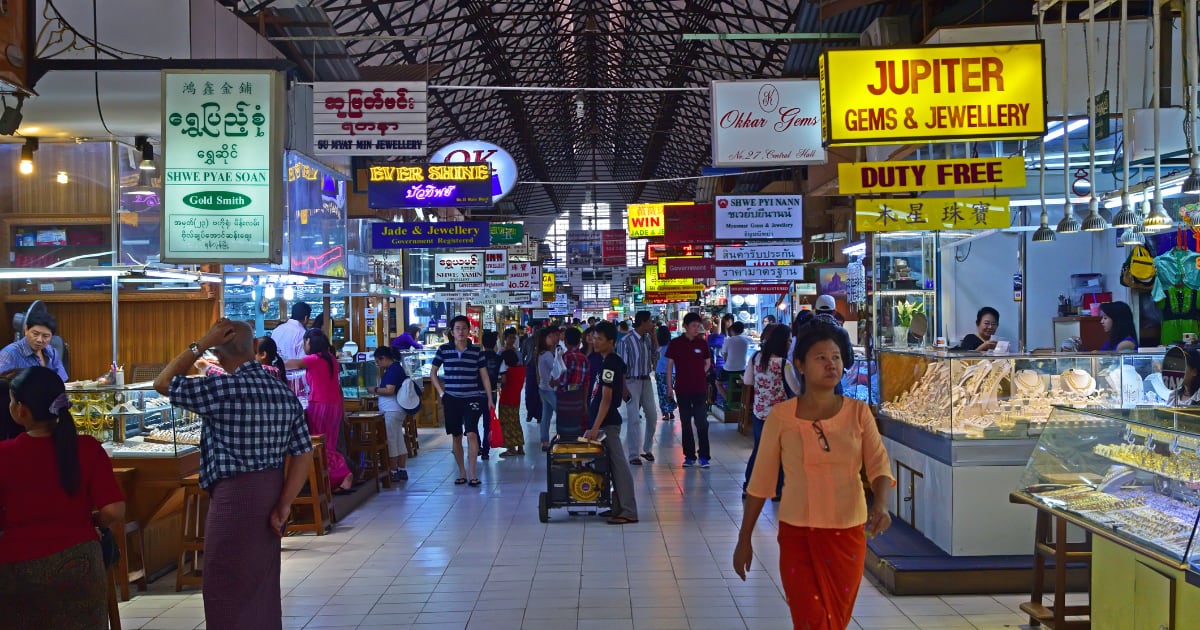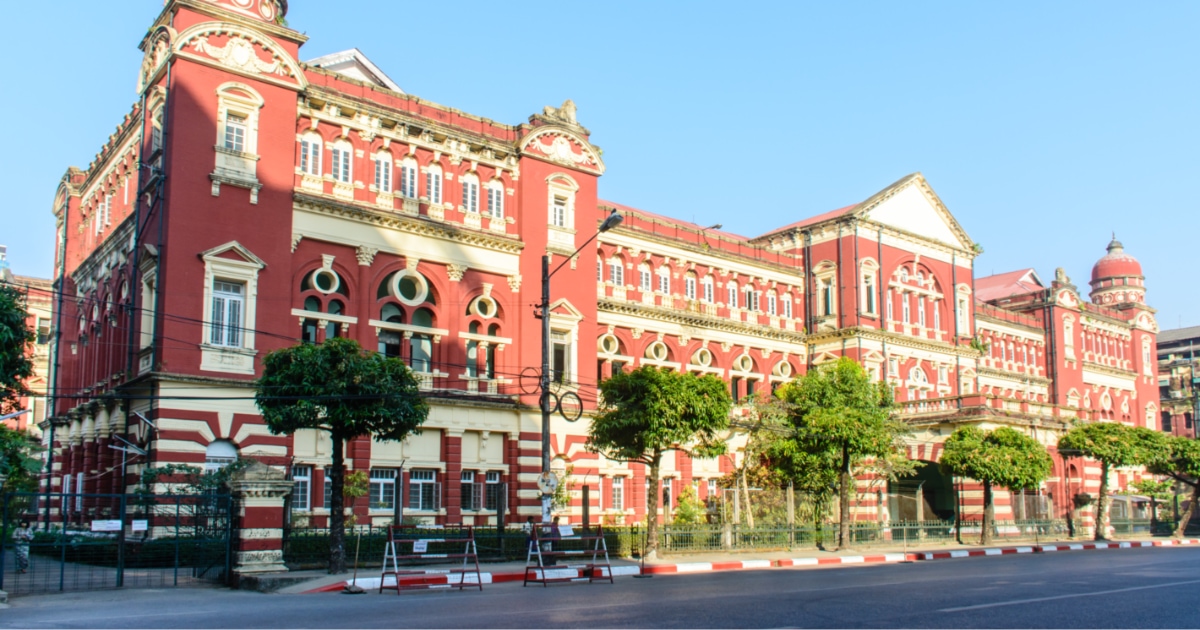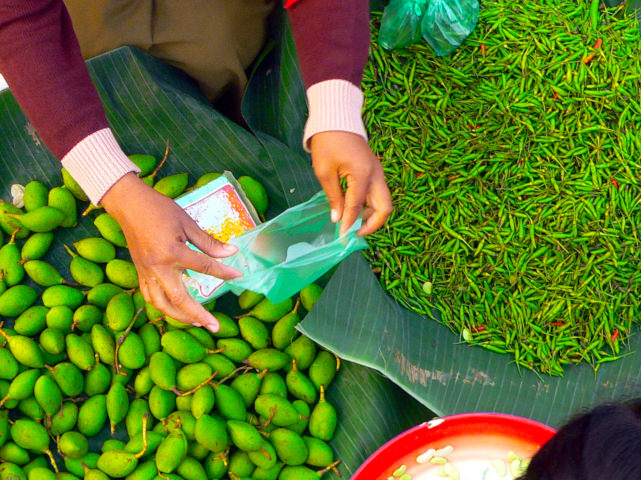Myanmar Highlights
May 2018
The Seattle-headquartered Starbucks Corporation (“Starbucks”) is to establish operations in Myanmar. On 12 May 2018, the Myanmar Investment Commission (“MIC”) approved the foreign investment proposal of Coffee Concepts Myanmar Ltd (“CCM”), a wholly foreign-owned food and beverage services provider, and Starbucks’ Myanmar franchisee. CCM, which was registered with the Directorate of Investment and Company Administration (“DICA”) in December 2017, will provide an initial capital investment of US$6 million. CCM proposes to establish 20 Starbucks branches across Myanmar within the next nine months. The first Starbucks outlet will be located in Sule Square Mall, Yangon. Starbucks first announced it planned to enter the Myanmar market in 2013. Following its expansion into Myanmar, Starbucks it will have established a presence in all ASEAN member countries except for Laos. Starbucks is not the first international coffee franchise to establish a Myanmar presence. Gloria Jean’s, an Australian coffeehouse chain, currently has four outlets in Myanmar, all located in Yangon. In February, Singapore-listed Myanmar Investco Limited (“SMI”) announced that it had secured an exclusive deal to establish and operate coffee shops under the Coffee Bean & Tea Leaf brand in Myanmar. SMI already operates two Coffee Bean & Tea Leaf outlets at Yangon International Airport. (Source: https://www.mmtimes.com/news/starbucks-open-first-outlet-yangon-taps-myanmar-growth-asean.html; 14 May 2018)
SGX-Listed Yoma Strategic Holdings to issue Baht-denominated bonds
SGX-listed Yoma Strategic Holdings Limited (“Yoma”) is set to become the first Myanmar-focused company to issue Baht-denominated bonds underscoring Thailand’s importance as a regional fund-raising hub. Thailand’s Ministry of Finance’s Public Debt Management Office has permitted Yoma, together with Lao’s EDL-Generation Public Company, the Export-Import Bank of Korea, and Malaysia’s Malayan Banking Berhad (Maybank), to sell bonds in Thailand to fund projects abroad. The four companies have until 31 January 2019 to conduct their respective offerings. The proposed bond issuance will be Yoma’s first. To date it has met its funding requirements through bank loans and the issue of shares. In November 2017 it raised US$61 million from a share placement to existing and new investors. Yoma is invested real estate, automotive, agriculture, tourism, mobile financial services and power projects across Myanmar. Yoma chose to pursue a bond offering in Thailand due to the attractive pricing and substantial liquidity of the Thai bond market. Myanmar’s domestic bond market is still in its infancy. In 2015, the Myanmar Government engaged Citigroup and Standard Chartered to advise on its obtaining an international credit rating, however no rating has being secured to date. In 2016, the Myanmar Government introduced the Public Debt Management Law to regulate the issue of Myanmar Government bonds to the public at market prices. Thai bankers remain hopeful that Yoma’s bond issue will lead to more Myanmar-focused companies undertaking Baht-denominated bond issuances. The Thai Finance Ministry has relaxed a two-year ban on the repatriation of funds from issuances of Baht bonds, conditional on the Baht-denominated proceeds being exchanged into US dollars on the onshore FX spot market. (Source: https://www.reuters.com/article/idUSL3N1SL34M; 15 May 2018)
Myanmar Investment Commission permits foreign investors to wholly-own private schools in Myanmar
Pursuant to Myanmar Investment Commission (“MIC”) Notification 7/2018 (“MIC Notification”) issued on 20 April 2018 foreign companies will be permitted to wholly-own private schools in Myanmar. Foreign-owned private schools will be permitted to provide either a curriculum prescribed by the Ministry of Education (“MOE”) or an internationally recognised curriculum approved by the MIC and MOE. The MIC Notification specifies the types of educational institutions, the types of educational services and the forms of entities in which foreign investors will be allowed to establish. The MIC Notification extends to schools offering primary and higher education, schools offering technical and vocational training. At present private education in Myanmar is regulated by the Private School Registration Act (2011) and the National Education Law (2014). The National Education Law does prescribe any consumer protection standards or requirements in respect to fee paying students. Private education will continue to be regulated under the Myanmar Foreign Investment Law and 2014 National Education Law until new rules implementing the MIC Notification are enacted. According to UNESCO data, an average of 7,200 students left Myanmar each year between 2011 and 2016 to study overseas, with Thailand, Japan, Malaysia and Singapore being the most popular destinations. (Source: https://www.mmtimes.com/news/myanmar-permits-full-foreign-capital-investments-education-sector.html; 23 April 2018)
AirAsia postpones plans to launch low-cost carrier in Myanmar
Malaysia-based AirAsia Bhd (“AirAsia”) has opted to postpone its plans to establish a low-cost carrier in Myanmar. AirAsia had been in negotiations with an unnamed local company with a view to establishing a Myanmar joint venture. According to AirAsia’s CEO Mr. Tony Fernandes, AirAsia may revisit the joint venture proposal in the future. The Myanmar joint venture would have given AirAsia access to up to 95% of Southeast Asia’s air travel market. AirAsia’s is also in the process of establishing a Vietnam joint venture which it expects to be operational before the end of 2019. (Source: https://af.reuters.com/article/commoditiesNews/idAFL3N1SM4QU; 15 May 2018)
Myanmar’s Ministry of Commerce permits foreign participation in wholesale and retail trading
Myanmar’s Ministry of Commerce (“MOC”) has eased restrictions on foreign participation in wholesale and retail trading activities in Myanmar. On 9 May 2018 the MOC issued Notification 25/2018 (“MIC Notification”). The MIC Notification, which is effective immediately, allows 100% foreign owned, as well as foreign and local joint-venture to trade any commodity manufactured in Myanmar or imported from overseas. Foreign traders were previously limited to dealing in fertilizer, seeds, pesticides, agricultural equipment, hospital equipment and construction materials. The MOC expects the Notification to lead to increased competition, an improvement in the quality of goods and service, and growth among Myanmar’s small and medium enterprises which will have greater access to international markets.
The MIC Notification prescribes the following minimum capital and local participation requirements:-
| Wholesale/Retail | |||
|---|---|---|---|
| Joint Ventures | Foreign Co.’s | Local Co.’s | |
| Min capital | US$2 million / US$700,000 | US$5 million / US$3 million | None |
| Local participation | 20% | N/A | N/A |
The MIC Notification prohibits foreign companies or joint-venture companies from operating mini-markets and convenience stores with a floor area of less than 929 square-meters. The MIC Notification further contains a general prohibition on unfair competition.
New companies are required to register with the MOC and apply for a permit / “endorsement”, from the Myanmar Investment Commission and submit to them a business plan containing a detailed list of the products to be traded, the location(s) where the company will operate, and its initial capital requirements. New companies are further required to obtain a recommendation letter from their relevant town/city development committee. Existing companies whose current capital exceeds US$700,000 must register with the MOC within 150 days of the Notification. (Source: https://www.thailand-business-news.com/asean/myanmar/69155-myanmar-announces-liberalization-of-trading-for-foreign-owned-companies.html; 9 May 2018)
Coffee Concepts Myanmar
MIC approval
AirAsia
Myanmar’s Ministry of Commerce
SGX-listed
MIC Notification
low-cost carrier
Myanmar joint venture
Baht-denominated bonds
Myanmar Foreign Investment Law
Tony Fernandes
National Education Law
UNESCO
Citigroup
Standard Chartered
This newsletter is for information purposes only. Its contents do not constitute legal advice and it should not be regarded as a substitute for detailed advice in individual cases.
Transmission of this information is not intended to create and receipt does not constitute a lawyer-client relationship between Charltons and the user or browser.
Charltons is not responsible for any third party content which can be accessed through the website.
If you do not wish to receive this newsletter please let us know by emailing us at unsubscribe@charltonslaw.com








